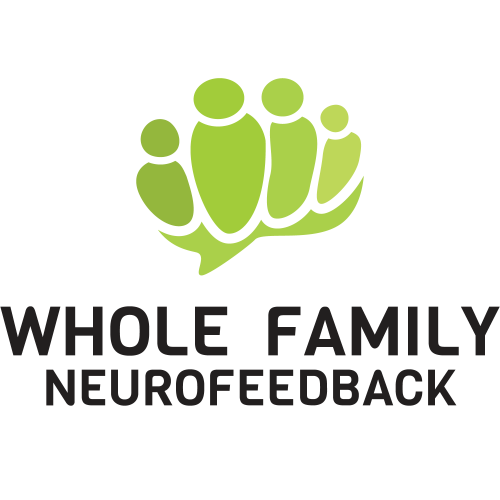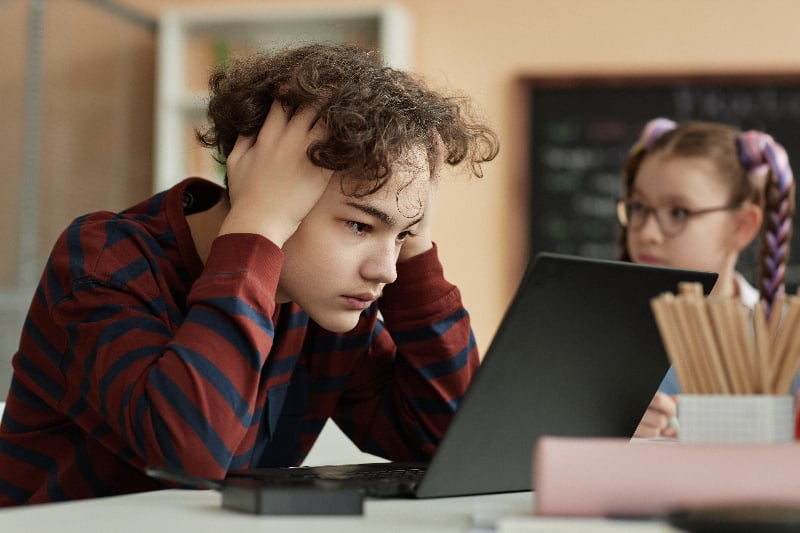How to Help Kids Cope After The Pandemic: A Parent’s Guide
Since the pandemic have you noticed your kids…..
Losing interest in things they once enjoyed?
Not doing as well in school?
Feeling more anxious?
Showing signs of sadness, hopelessness, or depression?
If so, you’re not alone. Although we’re living in a post-pandemic world, we’re still emerging from its shadows. For many, it’s left behind lingering effects.
Today’s blog talks about some of the common struggles kids have – mental health, learning loss, and emotional resilience and how you can help your kids cope with these challenges.
Mental Health
Before the pandemic mental health was declining in American kids. Between 2009-2019 there was a 40% increase in kids feeling hopeless and sad. 1 Periods of isolation, disrupted routines, and decreased socialization during the pandemic only made this worse.
Globally, rates of mental health issues like anxiety and depression were found to be 20-25% among kids which is more than double what it was pre-pandemic.2
Jami Young, Ph.D. at Children’s Hospital of Philadelphia says there are increased rates of depression, anxiety, suicide, and eating disorders among kids – especially teens.3
Getting help early can help kids have the best possible outcome.
Some signs that your child may be struggling with their mental health are:4
- Losing interest in things they once enjoyed
- Social withdrawal
- Increased feelings of worry, and anxiety
- Persistent feelings of sadness
- Feeling hopeless
- Big changes in mood and/or behavior
- Sudden changes in sleep patterns
- Not doing well in school
- Not going to school
- Difficulty concentrating
This list is not all-inclusive and there could be different reasons for these changes. Talking to your child’s doctor or a trusted person in their school is a great way to explore this further.
How You Can Help
Reach out to a trusted professional
This could be your child’s pediatrician, a therapist, teacher, or a school counselor. Reaching out to someone who has specialized knowledge about children’s mental health can help you understand your specific situation better. They can let you know if what your child is going through is simply part of their current developmental stage or if it needs more attention. They can also help you identify resources and supports that can help.
Get involved in your local community
There is evidence that shows that getting involved in community events and activities can help with mental health. When people get involved in their community there is a sense of connectedness that lasts a long time.2
Since mental health is a big concern in the U.S., many communities are developing mental health programs in schools. If your child attends a public or private school, you can ask if there are programs or activities available.
Learning Loss
When the pandemic hit, schools were one of the first things to close. This looked different for everybody but remote learning, prolonged school closures, and disrupted routines have had lasting effects on kids’ academic progress.
When schools opened up, many strict sick and quarantine policies increased kids being out of school. Kids losing time with their teachers has led to academic loss for many. Recovering from this takes time but the good news is that kids are usually more resilient than we give them credit for. You can help them cope with learning loss at home and school.
How You Can Help
Communicate with their teachers
Talking with your child’s teacher can help you understand what they are learning. This can help you start conversations about what they’re doing in school and help you connect with them.
Understanding what is going on in school can help you reinforce concepts at home. Reviewing school material for short periods of time, a few times a week can help improve learning loss.
Advocate for resources
If you feel like your child needs extra help, talk with their teacher to see what resources the school has for additional support.
- Does your child need more help?
- Do they need special accommodations for tests?
- Do they need an individualized education plan?
If so, you’ll want to explore all of your options with the school.
Emotional Resilience
Some kids’ emotional well-being has been impacted by the pandemic. Some have developed a fear of illness and some are struggling with grief from losses that occurred during the pandemic. Some kids are feeling the weight and pressure of financial strains the family is facing.
Resilience is the ability to bounce back from difficult situations and adversity. It’s safe to say that most people’s resilience was tested during the pandemic. The great thing is that resilience is a skill that can be nurtured and developed over time.
How You Can Help
Assess your resilience
As a parent, you have more influence in the house than you may realize. What you model can help shape the habits of your kids. Resilience is something we can all build and refine over time. If you think you need help with this, check out our blog on how adults can build resilience.
Encourage a growth mindset
A growth mindset is the belief that you can improve your talents, skills, and abilities with time and practice.
You can encourage a growth mindset by:
- Emphasizing effort and progress over perfection
- Celebrate achievements no matter how small
- Encourage your kids to embrace challenges as opportunities for growth
- Emphasizing that setbacks are temporary
How Neurofeedback Can Help Kids Cope
Neurofeedback can be an additional tool that can help in any of these areas.
Neurofeedback helps:
- Kids become more flexible and resilient – which makes what they’re dealing with easier
- Promote relaxation and healthy sleep habits
- Promote mental and emotional resilience
- Manage stress better
- Enhance focus and mental acuity
- Enhance learning capacity
- Improve kids’ ability to stay calm and relaxed during times of uncertainty
Improving any of these areas can help your child feel more calm, relaxed, and focused. Many parents report that neurofeedback helps kids focus better and increases participation in other services like counseling, tutoring, physical therapy, and speech therapy.
Neurofeedback can help your child’s brain feel more relaxed and calm. It helps their brain shift in a way that’s most optimal for them.
I always recommend NeurOptimal® neurofeedback becuase it’s safe, effective, non-invasive, and can be done at home. This type of at-home neurofeedback is great for kids because they can listen to music or watch a movie while doing it.
How Does NeurOptimal® Work?
Neurofeedback is a type of brain training that can help the brain work to find its most optimal state. NeurOptimal® monitors the electrical activity of the brain via sensors on the scalp and ears while listening to music or watching a movie.
Once the unit detects turbulence – or unpleasant patterns – it gives the brain a signal. This signal is simply a brief interruption in what the person is listening to. This signal helps bring the user back into the present moment and tap into the brain’s ability to find optimal functioning.
Your brain is always learning, organizing, and self-regulating. Using neurofeedback is like holding a mirror up to your brain and it helps tap into this ability more quickly.
The best thing about NeurOptimal® is that the sessions are unique to the user. The user only gets the feedback they need at that time.
Learn More About Neurofeedback With Other Parents
If you’re interested in getting parenting support and learning more about neurofeedback, join our Facebook group: Neurofeedback Moms (Dads are welcome, too!)
In our community, you’ll get:
- Research-based information to help you make the best decisions for your family
- Live sessions with experts in the therapeutic, neurofeedback, and parenting fields
- Lifetime access to all live recordings – watch at your convenience!
- Education about at-home neurofeedback and its benefits
- Support from other parents
Are you looking for more ways to help your kids cope with these struggles?
Do you want to meet parents who are going through a similar experience?
Join Neurofeedback Moms today.
We look forward to meeting you in the group!
Resources
- Mental Health Among Adolescents
- Prevalence Of Mental Health Problems Among Kids
- The Pandemic’s Lasting Effects On Kids
- Mental Illness in Children: Know The Signs
Disclaimer: This site contains information on general health and wellness topics. Please note that NeurOptimal® has been designated a general wellness product by the FDA. The information on this site or in any linked materials should not be construed as medical advice. The information in this article is not intended to replace any recommendations by your healthcare provider.

